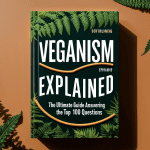Is Whey Protein Vegetarian? A Comprehensive Overview
Whey protein is a popular supplement known for its high protein content and numerous health benefits, but many people wonder whether it fits into a vegetarian diet. The answer is generally yes—whey protein is considered vegetarian. However, understanding the nuances of whey protein and how it aligns with various dietary preferences is essential.
What is Whey Protein?
Whey protein is derived from milk and is one of the two main proteins found in dairy, the other being casein. It is a by-product of cheese production, created when milk curds separate from the liquid whey during the cheese-making process. This means that whey protein comes from an animal source, specifically cows, but it does not involve the consumption of meat.
Why is Whey Protein Considered Vegetarian?
- Source: Whey protein is made from milk, which is an animal product but not meat. Most vegetarians consume dairy products, making whey protein suitable for their diets.
- Dietary Choices: Vegetarians typically avoid meat but may include other animal products such as dairy and eggs. Therefore, whey protein aligns with these dietary choices.
- Lacto-Vegetarians: Those who identify as lacto-vegetarians specifically include dairy products in their diets, which further supports the classification of whey protein as vegetarian.
Types of Whey Protein
There are three main forms of whey protein available on the market:
- Whey Concentrate: This is the least processed form and contains around 70-80% protein, along with some fat and carbohydrates.
- Whey Isolate: More processed than concentrate, whey isolate contains about 90% protein and less fat and lactose, making it easier to digest for those with lactose sensitivity.
- Whey Hydrolysate: This form is pre-digested for faster absorption and is often used in medical protein supplements and infant formulas.
Considerations for Vegetarians
While whey protein is generally vegetarian-friendly, there are a few considerations to keep in mind:
- Quality of Product: Some whey protein powders may contain additives or non-vegetarian ingredients (like certain flavorings or processing agents). Always check labels to ensure the product meets your dietary needs.
- Lactose Intolerance: Although whey isolate has lower lactose content, individuals with lactose intolerance may still experience discomfort. In such cases, plant-based protein alternatives may be more suitable.
- Vegan Alternatives: For those following a vegan diet or wishing to avoid all animal products, plant-based proteins such as pea, rice, hemp, or soy are excellent alternatives. These options can provide similar benefits without any animal-derived ingredients.
In summary, whey protein is considered vegetarian as it is derived from milk rather than meat. It can be a valuable addition to a vegetarian diet for those looking to increase their protein intake. However, individuals should be mindful of product quality and their own dietary restrictions. For vegans or those avoiding all animal products, there are plenty of plant-based protein alternatives available that can effectively support muscle growth and overall health. Always choose the option that best aligns with your dietary preferences and nutritional needs!










